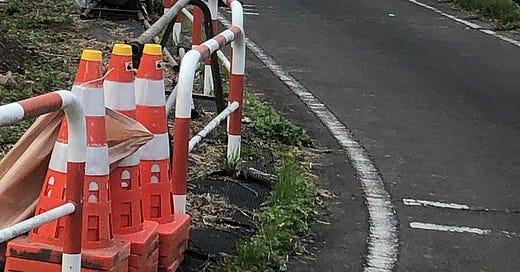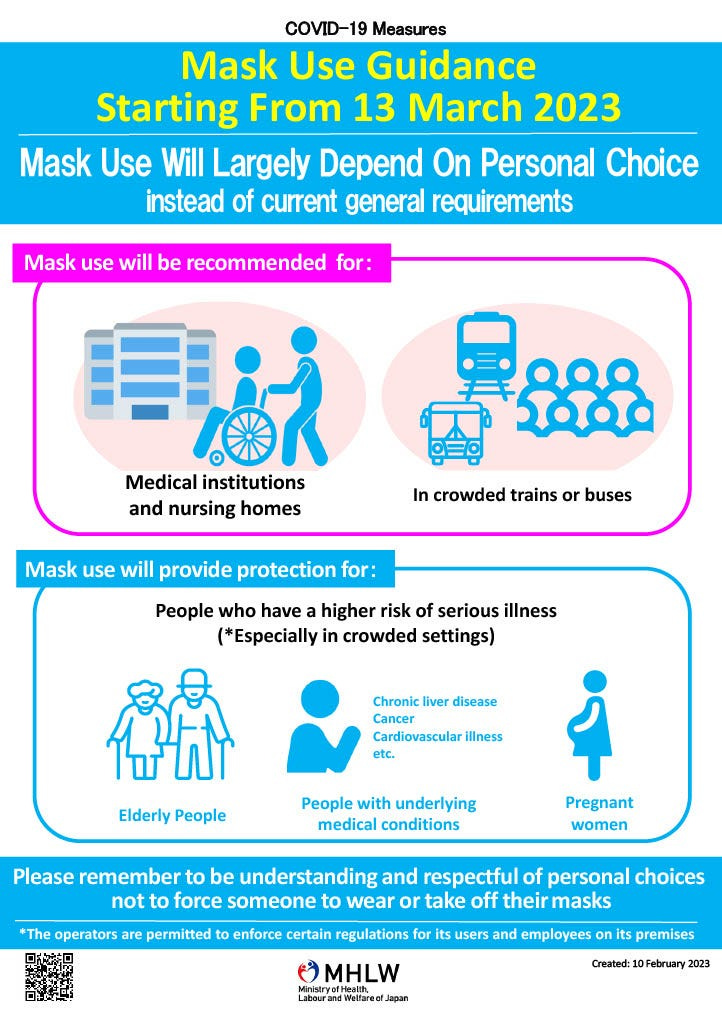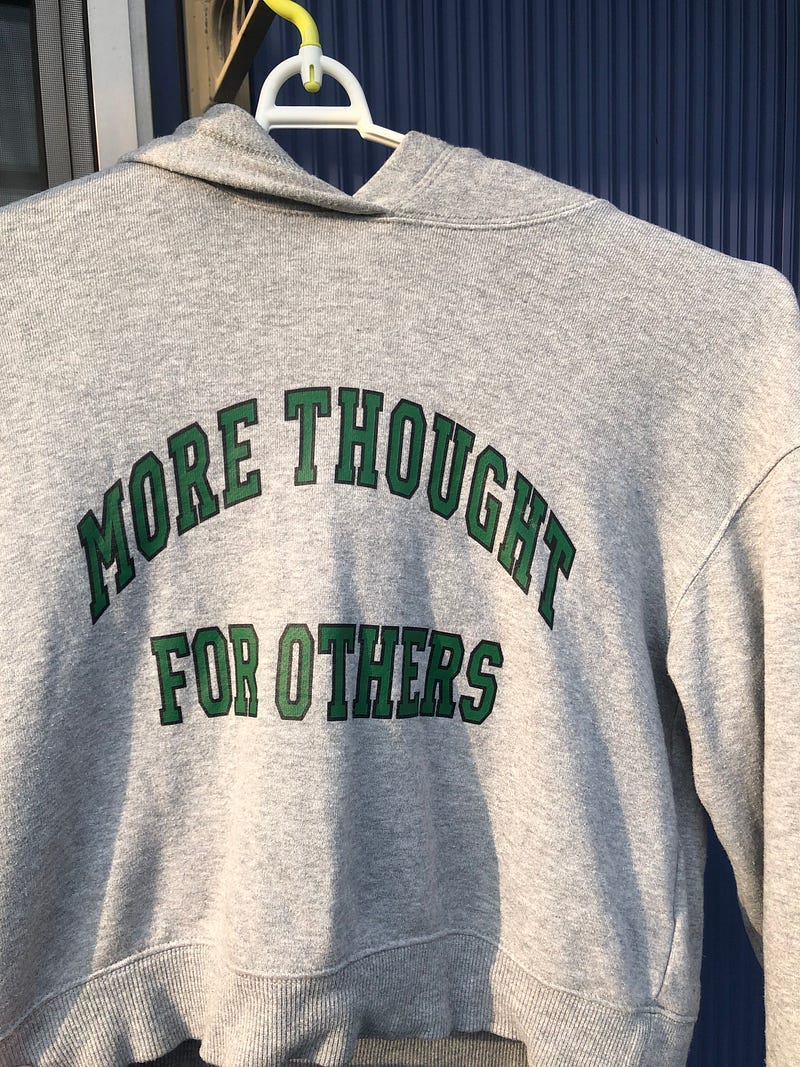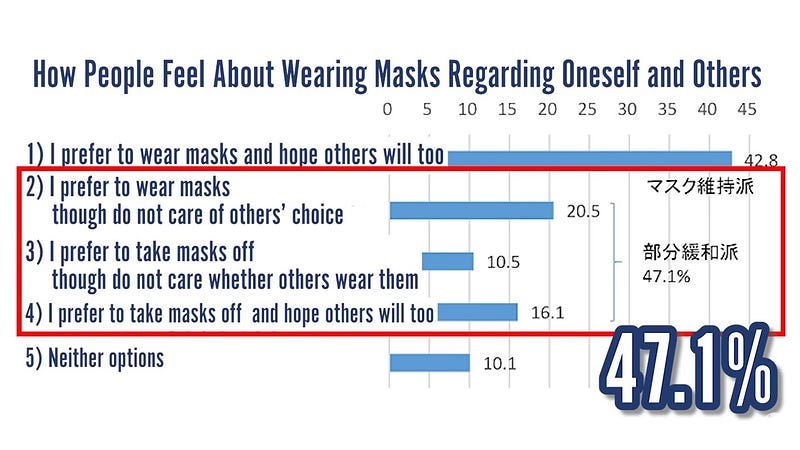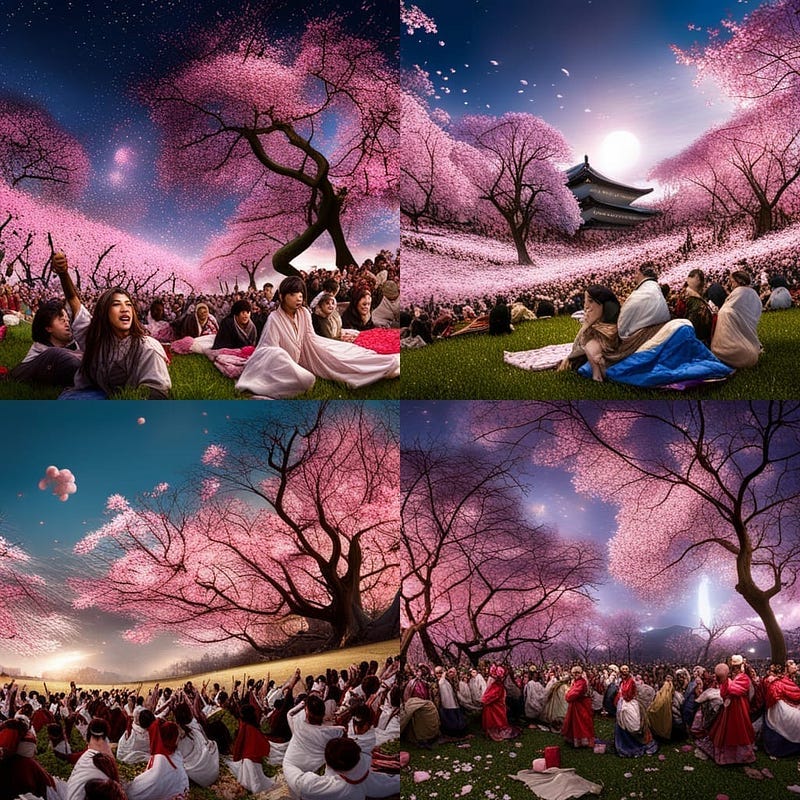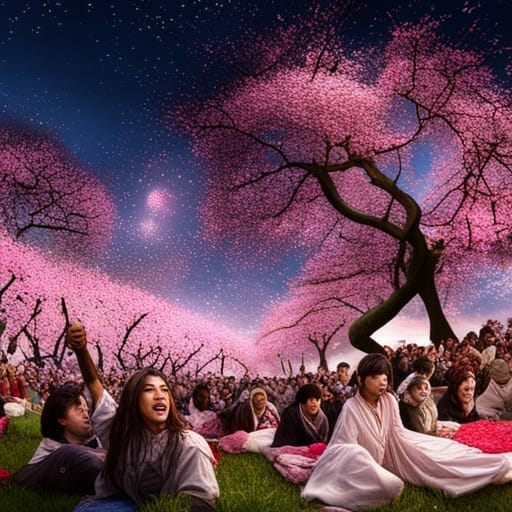Japan’s Experience with Masks During COVID Is Not What You Think It Is
With mask rules loosened in mid-March, it’s time to look back and ask some questions about the price we paid for the policy
With mask rules loosened in mid-March, it’s time to look back and ask some questions about the price we paid for the policy
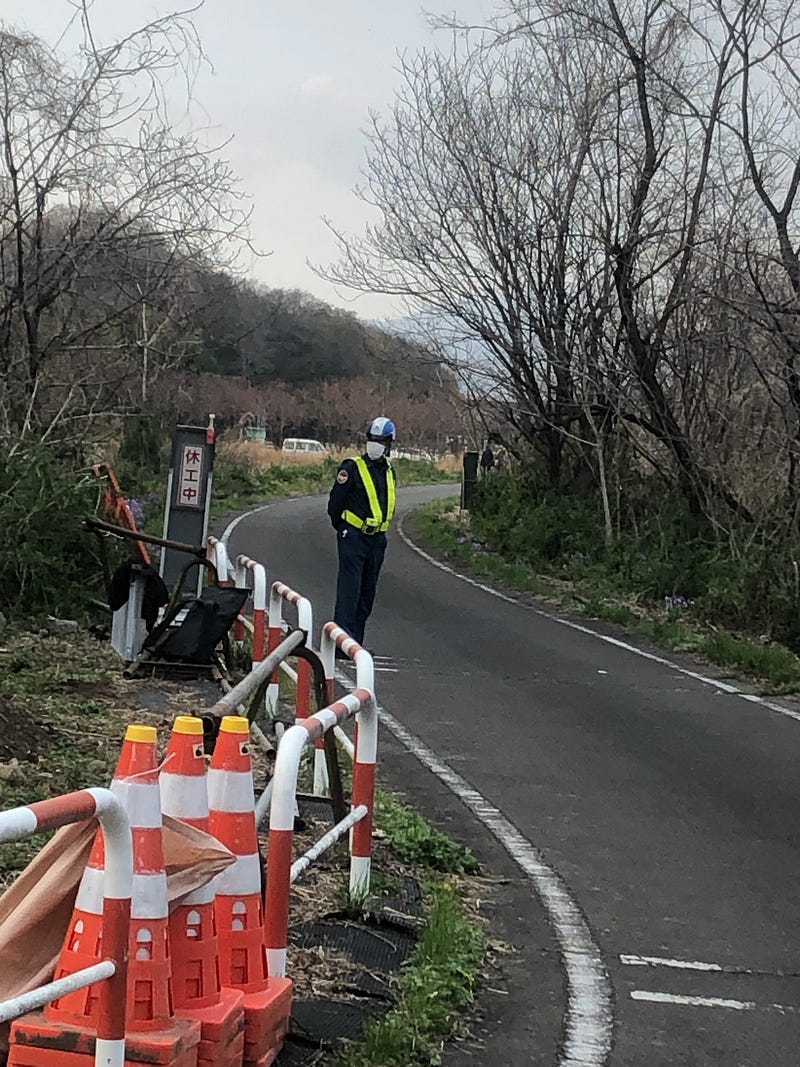
All is well with my world in central Japan — the sakura arrived early after a balmy March, the opening day of MLB is in the books and my Seattle Mariners won, my freelance teacher’s brain is rested after a rejuvenating week away from all actions about classes, we are three weeks into a world with loosened mask regulations and, last but not least, everyone in Japan is now mask-free, showing their lovely smiles for the first time in three years.
You can’t have everything, right?
No, much as I wish to return to daily life in Japan where masks are worn mostly in the winter for the flu and in the spring for hay fever by about 1/3rd of the people, that world remains, for now, a mirage.
But that mirage began to materialize in mid-February when I learned that starting from March 13 “mask use will largely depend on personal choice.” Those next four weeks I was a kid in December waiting for Christmas.
Now before I go on, I want to make something clear: I’m neither anti-mask, nor pro-mask. You see, I’m a nuance guy who dwells in the murky corridors of both/ands, and I reject the Thought Police who are turning every discussion about social policies into simplistic binaries to keep us divided.
That’s right, fuck off Thought Police and take your Karma Police with you (but leave the Radiohead).
So go ahead — wear your masks, or don’t wear them. I don’t care. You do you! I trust you. I trust that you have a better sense of your health than some far-away health bureaucracy possibly can. In short, I live in a world where I trust everyday people and I’m tired of living in one where social policies made by unaccountable bureaucrats I don’t trust are making it harder to trust you.
Having said all of that, it’s been my opinion — and observation — since well before 2020 that wearing a mask, especially long-term and in social interactions, can have some negative psychological consequences so I’m extremely happy the Japanese government has made this long-awaited change.
Now, if only the people would come along for the ride! When I’ve gone into supermarkets and shopping malls over the past few weeks, maybe 1 out of 100 people are mask-less, only a tiny improvement from before.
It’s sad but expected. To understand why, let’s consider the psychology of Japanese culture.
Social Norms Are Enforced By Peer Pressure, Not Legal Mandates in Japan
Having lived in Japan since 2004, I’ve come to appreciate that people here behave in certain ways not because they are following government orders, but because they believe people around them want them to behave in those ways.
In this video from June 2022, a young Japanese woman says that “If you remove your mask, you will receive judgment from the people around you.”
Note: This is her opinion. It may not be the case, as I’ll demonstrate below. Regardless, the Japanese tend to think this way. In short, it’s a form of peer pressure. The upside, especially for a foreigner living here who doesn’t feel compelled to behave the same way as everyone else, is that this means when the government makes policies, they often come without any legal teeth.
Thus, throughout 2020, there never were any official mask mandates. Stores put up signs to wear masks, and businesses and schools asked employees and students to wear them, but nobody got fined for disobeying, and nobody got arrested.
(There were other major differences between Japan and many countries in 2020. For one thing, COVID-19 was never politicized and weaponized. And while public junior high and elementary schools shut down from March to mid-May of 2020, they have remained open ever since and there was much less online schooling, none in the public schools I’m aware of).
While sometimes localities would put up police tape to close parks — one of the most asinine, anti-nature/anti-health policies of the COVID era — if a guy like me took the tape down, a few minutes later other Japanese would join me. Worked every time!
(What kind of world would it be without the rebels?)
However, if the police had arrived, all they would have done is try to convince us to leave, they couldn’t have arrested us. Why? Because there was no law on the books about park closures. After all, if 99.9 percent of Japanese people will accept what authority figures tell them to do, there’s really no need for a law.
I can’t stress these differences between Japanese and American culture enough. I believe it also explains why there are so few police on the streets here and so few security cameras. In my experience, this leads to a greater sense of ease and freedom than I have in most places in the U.S.
But there’s more to these major psychological differences between Japan and the U.S. You may have heard the Japanese saying, “The nail that sticks up gets hammered down” (出る杭は打たれる). Traditionally, people here are taught that standing out from the crowd is selfish and that social harmony is a higher good than individual free expression.
If you are curious to hear more about this psychology from a Japanese man who spent some of his childhood in America, I recommend watching his video “Why You must NEVER Stand Out in Japan”.
But what does that have to do with their reluctance to remove masks?
Just about everything.
Will Japanese People Wear Masks Forever?
Think about: In a culture where everyone looks to everyone else to determine how to behave and everyone is behaving the same way, who is going to be the first person to break the mold?
Don’t be that nail sticking up! Watch out for that hammer, rebel!
No, better not to risk it. It doesn’t matter if the government says it’s okay to break the mold; instead, Japanese people are going to look to others to see how they are behaving to determine their behavior.
The odd thing is, though, it’s very possible that what Japanese people think others are thinking is actually incorrect, at least when it comes to wearing masks. Remember how that young woman said others will judge her if she removes her mask? Well, this study from early 2022, which came from the video above, suggests that almost half of Japanese people don’t care if others wear a mask or not.
In sum, it seems much of what drives current behavior about wearing a mask under the loosened rules comes from what people think others are thinking, even if they aren’t thinking it! Now, do you see why I don’t feel compelled to adapt my behavior to this, umm, logic?
Here’s a sad thought: Do those Japanese people who don’t care if others wear masks feel like they are unique for thinking that? Do they assume others will judge them for even having the thought? Can you see how this would lead one to feel a sense of alienation in this situation?
Now, to close this section on a more positive note, I went out briefly today and saw a few more mask-less faces. Thus, I still believe my dream can come true. I expect as the weather warms up, more and more people will have the courage to “Just Say NO (to masks)” and then more and more will follow.
I can’t wait.
Pause For Some A.I. Inspired Humor
Everything you’ve read so far has been false. At least this is the message I’m getting from my A.I. Overlord. You see, he/it/they/WTF? has shown me the real reason Japanese people are reluctant to take off their masks.
They no longer have faces.
Don’t believe me? Take a look for yourself. My prompt was “Japanese cherry blossoms falling from trees onto a field of people having a traditional hanami picnic.”
And, well, here is what I got:
The bottom two just look downright cult-y but the one in the upper right is passable (I like how the people sort of morph into a carpet of cherry blossom petals).
Yes, yes, the faces, Bryan, don’t forget the faces! Go on, look at the faces in each, but particularly this one:
Ye gawds, only one person has kept his face!! And even his (hers?) has been slightly infected by pre-set pancake disease. (Don’t know PSPD? Look it up!)
If these others are what has happened to Japanese faces over the past three years, then, by all means, everyone …
Please keep your dang masks on!
The Psychological Costs of Mask Wearing
On a hot day late last spring, I was teaching a class of 7-to-10-year-olds, and the mask I had was just too darn hot so I took it off.
You would have thought I’d whipped out a pistol!
“Sensei, kowai! Kowai!” (It’s scary teacher! Scary!)
I admit it, I got angry. I said, “Trust me, I’m not sick. You are safe.”
“Kowai! Kowai!”
Yes, due to the way they’ve been conditioned, these small kids thought a healthy man without a mask was not only a danger to them, but to their grandparents.
I had to leave the room because I didn’t want to say or do anything to dig myself in any deeper.
Why couldn’t I, as a healthy person, teach my class without a mask on? Asymptomatic spread? That claim was always somewhat specious but extremely necessary in order for societies around the world to enforce and follow the sorts of top-down policies that defined the COVID-19 era.
Furthermore, believing in asymptomatic spread had serious psychological consequences. As this article states,
In the past, a person was assumed to be healthy until proven sick. If one missed work for a prolonged period, one needed a note from a doctor establishing an illness. During COVID, the criteria was reversed: we began to assume that people were sick until proven healthy. One needed a negative COVID test to return to work.
While this author doesn’t mention it, this pole reversal in thinking is concurrent with a reversal among Western people, notably some in high positions of power, about the nature of our legal system from “innocent until proven guilty” to “guilty until proven innocent.” These are serious changes that need healthy discussions.
Meanwhile, back in my classrooms, teaching and learning a foreign language while wearing masks adds several challenges. Japanese people, especially women and girls, tend to speak more quietly than Westerners. As a guy who abused his ears following rock bands around the country in his 20s, that’s always been a challenge for me teaching (and living) here. Masks made it worse.
In addition, humans read facial expressions and lips to understand each other and when communication is moving across very different cultures, losing this ability is a serious price we paid by wearing masks.
Last, because we can communicate our emotions with our faces, this can help us determine how much to trust the person we are communicating with. Is this why when I took my mask off, my young students didn’t feel they could trust me to do so?
Conclusion: Give Me My Faces Back!
Now, there are two more reasons I’ve heard Japanese people say they want to keep wearing masks. The first is from young women, who say they don’t have to put on make-up when they wear a mask. As a guy who doesn’t like to take long on my personal appearance, fair enough. But hey, maybe try going without make-up? That’s a fix, too!
The second is one I’ve heard from my students, especially teenagers, and that is, “I don’t look as cute without a mask.” In short, they believe that the features under their mask aren’t attractive.
Now, from my experience, there’s some truth to this, but it comes with a twist. And like Japanese fears of being judged for taking off masks, this one is in the mind.
Maybe you’ve had this experience: you have only known someone with a mask, you’ve never seen their full face, and when you do, you feel a sense of shock. You see, all of this time when we’ve been wearing masks, our minds have been filling in the pieces for what’s underneath the masks and, to our credit, usually we give people pleasant features.
But humans? We aren’t like that! We have faces of all sizes and types! And folks, I miss seeing them — I really, really do — even the, umm, ugly ones!
So there are many reasons I hope Japanese people will remove their masks. But the main one is my sense of being better connected to the people around me by seeing their faces.
I’ll put up with the plastic shields in front of cashiers and I’ll adapt to visits to restaurants where I’m not likely to interact with human staff, but I want my faces back, okay? Just one thing:
Make sure your A.I. Overlord has them fully rendered.
Thanks for reading! You can support me simply by sharing my stuff, by buying me a coffee, by linking to me on Twitter or Facebook by checking out my old blog, by listening to my podcast, The B&P Realm Podcast, or by reading my 2015 novel, “The Teacher and the Tree Man.” You can also find that book in full here, or broken down into four shorter books (book 1, book 2, book 3 and book 4) or you can listen to it for free.

